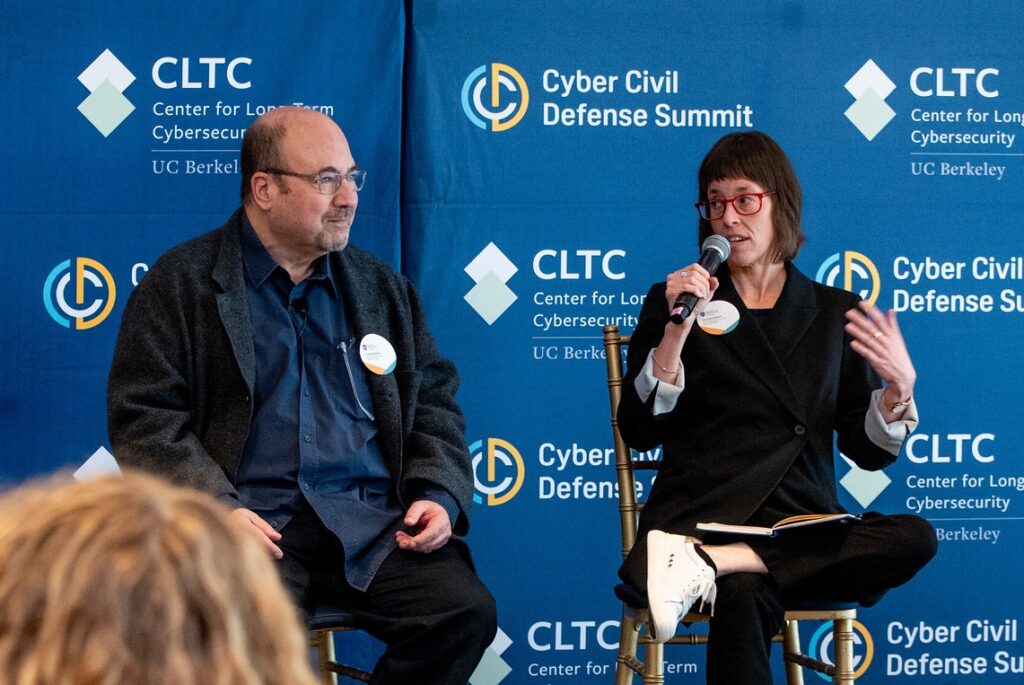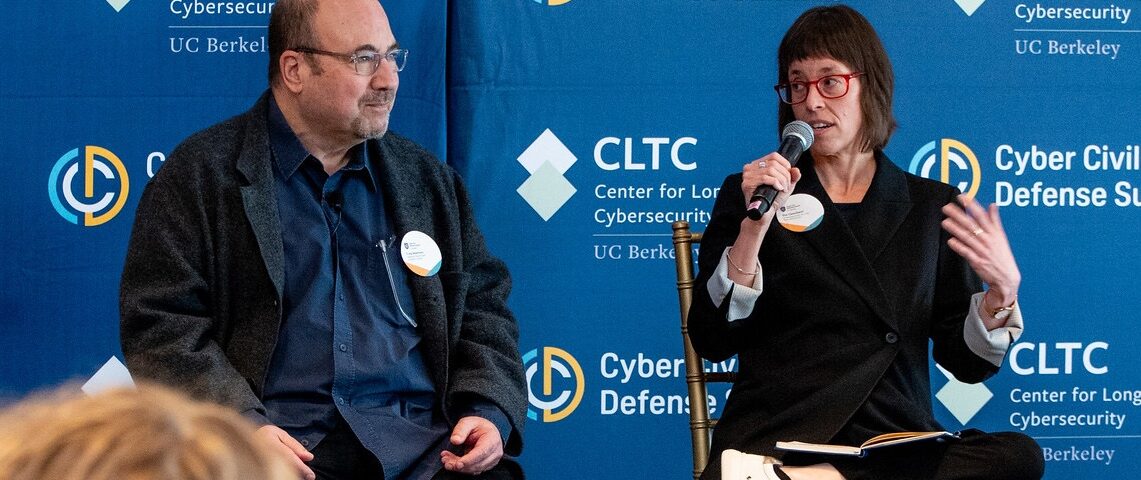
Craig Newmark Philanthropies (CNP), the grantmaking organization launched by the founder of craigslist, has renewed its support for UC Berkeley’s Public Interest Cybersecurity Program, housed at the UC Berkeley Center for Long-Term Cybersecurity (CLTC). The funding will support a portfolio of interconnected initiatives aimed at addressing the lack of cybersecurity protections for nonprofit organizations, K-12 schools, small critical infrastructure providers, small businesses, and other social-sector organizations.
The renewed funding will allow CLTC to partner with the Cybersecurity and Infrastructure Security Agency (CISA) and the nonprofit CyberPeace Institute to convene a Volunteer Network for Cyber Civil Defense, bringing together leaders of volunteer cybersecurity assistance programs at the local, state, and national level to expand service coverage, streamline access to cyber volunteer opportunities, share threat intelligence, and advocate for organizations that need assistance with cybersecurity.
The investment is part of Newmark’s Cyber Civil Defense Initiative, which is supporting a broad coalition of organizations dedicated to building a whole-of-society effort against cyber insecurity.
“Cybersecurity resilience and protection should be widely available and accessible to small critical infrastructure and community organizations in all 50 states,” said Ann Cleaveland, Executive Director of CLTC. “Craig’s generous support for UC Berkeley’s Public Interest Cybersecurity Program will allow us to invest in the partnerships that truly make a game-changing impact in the field.”
Newmark has been a longstanding champion of CLTC and the Consortium of Cybersecurity Clinics. “Volunteer networks and no-cost cyber services are important parts of cyber civil defense, bringing critical resources into communities that need a hand with cyber protection and resilience,” Newmark says.
Stéphane Duguin, CEO of the CyberPeace Institute, reinforces this view: “We are building a future where cybersecurity volunteers can more effectively help under-resourced organizations, creating a more resilient and secure digital environment for those who need it most.”
Other projects within CLTC’s Public Interest Cybersecurity Program include:
- The Consortium of Cybersecurity Clinics: Modeled on clinics in law and medicine, cybersecurity clinics train and deploy students to provide pro bono cybersecurity assistance to nonprofits, municipal governments, and other public interest organizations. The Consortium provides a platform for clinic faculty, students, and allies to share best practices and lower the barriers to starting a new clinic.
- Cybersecurity for Cities and Nonprofits (CyberCAN): Launched through a partnership between CLTC and the City and County of San Francisco, this new initiative aims to establish a model for city governments to provide enhanced cybersecurity support to local nonprofits that provide vital services to city residents, such as food, housing, and health care.
- Secure by Design Initiative: CLTC is mobilizing vendors of critical technology, including makers of educational technology (EdTech) that serve 14,000 school districts nationwide, to find and fix security vulnerabilities in widely utilized software systems. Through partnerships with federal agencies and industry leaders, CLTC leads the adoption of “secure-by-design” principles and promotes dialogue among security leaders from the public and private sectors.
- Cyber Civil Defense Summit: With support from Craig Newmark Philanthropies, CLTC annually convenes the Cyber Civil Defense Summit in Washington, D.C., a forum for cross-sector conversations between academics, volunteers, industry practitioners, civil society leaders, and state, local, and federal government officials, all dedicated to working together to protect vulnerable, under-resourced community organizations.
“We are so proud to lead this portfolio of initiatives that are building community cyber resilience across the nation,” says Sarah Powazek, Director of the Public Interest Cybersecurity Program. “With Craig’s support, we are excited to scale up our role as a convener for the thousands of people and organizations that rely on cybersecurity protections for public life, and focus our work on addressing pressing cyber challenges for those who need it most.”
Watch our “What? Now What? So What?” explainer video on public interest cybersecurity.




